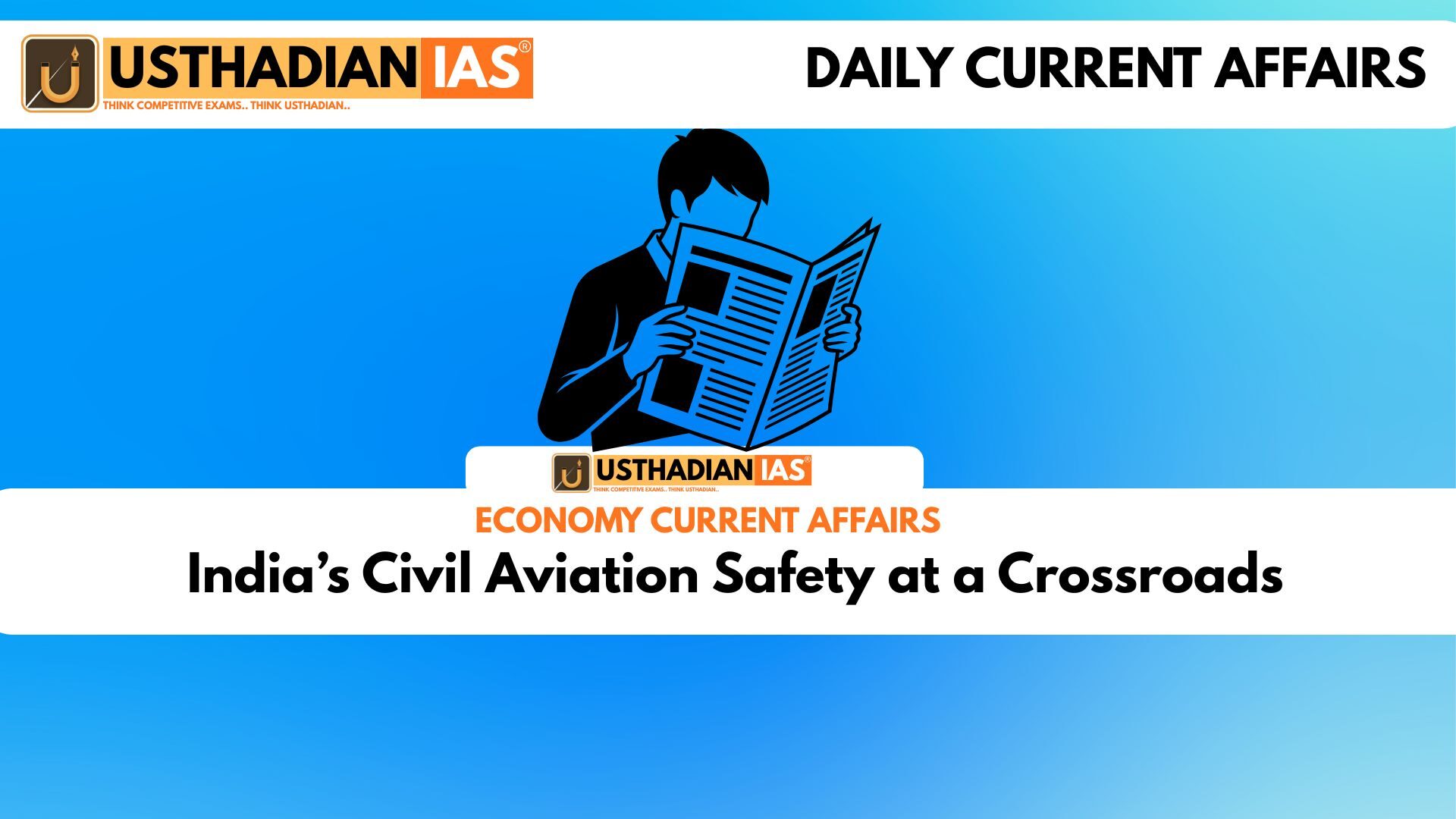DGCA Challenges
India’s Civil Aviation Safety at a Crossroads: The Directorate General of Civil Aviation (DGCA) remains critically understaffed, with nearly half its sanctioned posts vacant. Many technical experts are on short-term deputations, leading to high attrition and poor institutional continuity. Low salaries and limited autonomy further restrict recruitment. Failure to reform could risk ICAO safety audits, potentially impacting India’s global aviation reputation.
Static GK fact: The DGCA was established in 1927 and functions under the Ministry of Civil Aviation.
Air Traffic Control Overload
Air Traffic Control Officers (ATCOs) face extreme pressure due to staff shortages and prolonged duty hours. Nighttime merging of control sectors increases risks of miscommunication and errors. The parliamentary committee highlights the need for a Fatigue Risk Management System, better training capacity, and elimination of exemptions that enable institutionalised overwork.
Static GK Tip: India’s busiest airport by passenger traffic is Indira Gandhi International Airport, New Delhi.
Enforcement Gaps
The report noted that thousands of safety deficiencies remain unresolved. DGCA’s enforcement is often procedural, lacking deterrence. Stronger penalties such as licence cancellations, monetary fines, and independent audits are suggested to ensure compliance.
Helicopter Operations Oversight
Helicopter operations, especially in pilgrimage zones, lack robust DGCA supervision. States often regulate these flights with limited expertise. The committee recommends a national regulatory framework, terrain-specific pilot training, and a dedicated DGCA cell to monitor high-altitude flights.
Static GK fact: Kedarnath, one of the Char Dham pilgrimage sites, is among India’s busiest hubs for helicopter operations.
Recurring Operational Risks
Cases of runway incursions and near mid-air collisions are rising beyond acceptable safety limits. Investigations often fail to translate into reforms. The committee insists on root-cause analysis, corrective programmes for risky airports, and faster adoption of Instrument Landing Systems (ILS) and fog navigation technologies.
Whistleblower Protection and Safety Culture
India’s aviation culture remains punitive, discouraging staff from reporting safety lapses. Heavy fines undermine trust. The committee recommends adopting just culture principles that differentiate honest errors from negligence, alongside legal protection for whistleblowers to ensure confidential reporting.
Static GK Tip: The International Civil Aviation Organisation (ICAO) was founded in 1944 under the Chicago Convention.
Dependence on Foreign Maintenance Facilities
India sends nearly 85% of heavy aircraft maintenance abroad, costing airlines ₹15,000 crore annually. This dependence poses risks during geopolitical tensions. Recommendations include tax rationalisation on spare parts, incentives for domestic MRO hubs, and a National Aviation Skill Mission to build local expertise.
Governance Issues
The Airports Authority of India (AAI) lacks a permanent Member for Air Traffic Control on its Board, weakening governance. This structural gap undermines safety planning and long-term oversight. The committee strongly urges reforms to strengthen governance in aviation safety.
Static Usthadian Current Affairs Table
India’s Civil Aviation Safety at a Crossroads:
| Topic | Detail |
| DGCA staffing | Nearly half posts vacant, high attrition due to deputations |
| ICAO audits | India risks negative evaluation if reforms not done |
| ATCO workload | Long shifts, fatigue, sector merging at night |
| Enforcement | Weak penalties, lack of deterrence, thousands of gaps pending |
| Helicopter safety | Fragmented oversight, need for national framework |
| Runway incursions | Rising cases, demand for root-cause analysis |
| Whistleblower safety | Need for just culture and legal protection |
| MRO dependence | 85% of heavy checks abroad, costing ₹15,000 crore |
| Skill mission | Proposed National Aviation Skill Mission for domestic MRO |
| AAI governance | No dedicated ATC member on AAI Board |








